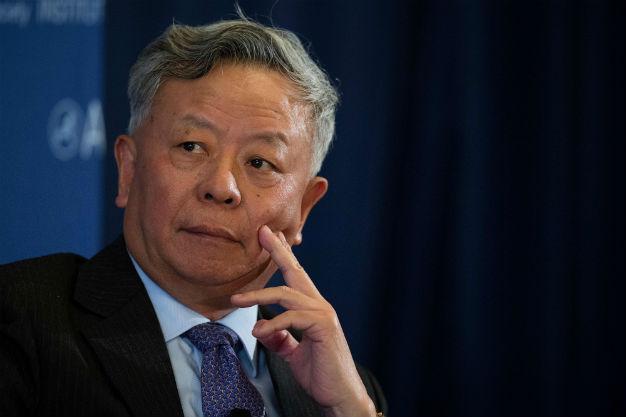World Bank and China-backed infrastructure bank join hands
WASHINGTON - Agence France-Presse

AFP photo
The World Bank and the new China-backed Asian Infrastructure Investment Bank, originally seen as possible rivals, joined hands April 13 with an agreement to co-finance projects.
The two development banks signed off on a framework for working together on infrastructure programs over the coming year which will give the World Bank some crucial oversight on how projects are planned and implemented.
In its first year of operation, the AIIB expects to approve about $1.2 billion in financing, with a “sizable share” of that to be in joint projects with the World Bank, the two said.
Under consideration are around a dozen projects including water, transportation, and energy developments in East, Southeast and Central Asia.
Beijing riled some World Bank backers two years ago when it moved to establish the AIIB to support the huge demand for infrastructure development in Asia.
Critics led by the United States worried that the AIIB would set much lower standards for projects that would undermine principles of social, environmental and economic sustainability adhered to by the World Bank and other multilateral development finance institutions.
The AIIB was formally created in December with 57 members, and China the largest shareholder with 30 percent.
But the United States and Japan declined to join, reserving their support for the World Bank and the Asian Development Bank, where Washington wields great influence.
The two development banks said April 13 that under their agreement, the World Bank will prepare and supervise the joint projects “in accordance with its policies and procedures in areas like procurement, environment and social safeguards.”
World Bank President Jim Yong Kim called the agreement “an important first step toward working with a new partner to address the world’s huge infrastructure needs.”
Speaking at an Asia Society conference in Washington, AIIB President Jin Liqun said Wednesday that there is “vast room for cooperation” between the two, citing a forecast of the need for up to $10 trillion worth of infrastructure projects across Asia for the next decade.
“We do not have to compete,” he said, pledging high environmental and financial standards for the AIIB.
He added that the AIIB will have no tolerance for corruption and had already turned down a tainted project proposed to his bank after the World Bank and Asian Development Bank had turned it down.
“If corruption is involved, I’m sorry, we cannot do it.”
